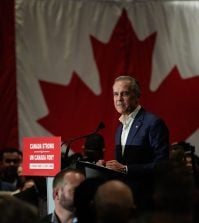Union welcomes Biden’s picks for labour relations panel

The Biden administration has proposed the appointment of academics, union lawyers, mediators and a former chairman of the National Labor Relations Board to serve on an arbitration panel for labour-management negotiations.
The ten appointees will sit on the Federal Service Impasses Panel (FSIP): a branch of the Federal Labor Relations Authority charged with resolving disputes between unions and government agencies.
The president’s choices were welcomed by National Federation of Federal Employees (NFFE) National President Randy Erwin, who said: “During the previous administration, the anti-union, anti-employee attitude of the White House trickled down into the agency, resulting in opinions that overwhelmingly favoured management.
“With the wealth of federal labor-management experience president Biden’s selections possess, I am confident in their ability to fairly resolve conflicts reached at the bargaining table and restore trust in the panel.”
Heavyweight experience
Proposed chair Martin Malin is professor emeritus at Chicago-Kent College of Law, Illinois Institute of Technology, where he taught for 41 years, founded the Institute for Law and the Workplace, and served as director of the Institute for 25 years. He has published more than 80 articles and seven books on labour law.
He was previously a member of the FSIP from 2009, but left the position in May 2017. Several other members of the panel are also returning after earlier stints under former presidents Obama and Clinton. These include Edward Hartfield, who has spent his 45-year career in the roles of mediator, arbitrator, facilitator, election administrator and neutral convenor; and Marvin Johnson, executive director of the Center for Alternative Dispute Resolution, which he founded at Bowie State University in 1986.
The lineup
Other members of the panel include:
Wynter Patrice Allen, a partner at the Alden Law Group, in Washington DC, where she practices employment law. She has also served as a Commissioner on the District of Columbia’s Commission on Human Rights since 2017. From 2011 until 2013, she served as the chair of the District of Columbia’s Public Employee Relations Board.
Jeanne Charles, who practices arbitration, mediation and fact-finding, predominantly in workplace disputes. She currently serves as a labour and employment arbitrator on various public and private sector panels, and is on the rosters of the American Arbitration Association, Federal Mediation and Conciliation Service, and National Mediation Board. She is a fellow with the College of Labor and Employment Lawyers, and sits on the Board of Governors of the National Academy of Arbitrators.
Howard Friedman served 25 years in the federal government as an attorney, and 23 years as president of the National Treasury Employees Union at the US Patent and Trademark Office (USPTO).
Mark Gaston Pearce, a visiting professor and executive director of the Georgetown University Law Center, Workers’ Rights Institute. He was formerly a board member and chairman of the National Labor Relations Board.
Pamela Schwartz has held positions within the Patent Office Professional Association, an independent federal labour union representing over 8000 patent examiners and other patent professionals at the USPTO, culminating in three years as Union President.
Joseph Slater is a member of the Labor Law Group, a group of employment law scholars, and of the College of Labor and Employment Lawyers, a group of practitioners and academics specialising in labour and employment law.
Tamiko Walker Watkins is an assistant general counsel at the Millennium Challenge Corporation, where she advises on employment and administrative law and is responsible for managing the administrative law team. She has also served as a mediator for several organisations, including the Superior Court of the District of Columbia.
Former president Donald Trump was accused by unions of diminishing federal workers’ rights, undermining scrutiny and weakening the principle of appointment on merit in the permanent civil service, pursuing reforms to weaken unions’ clout and make it easier for agencies to fire federal employees. Biden’s choices signal a desire to return to a less fractious and more constructive relationship between the executive, employers and the workforce.






















